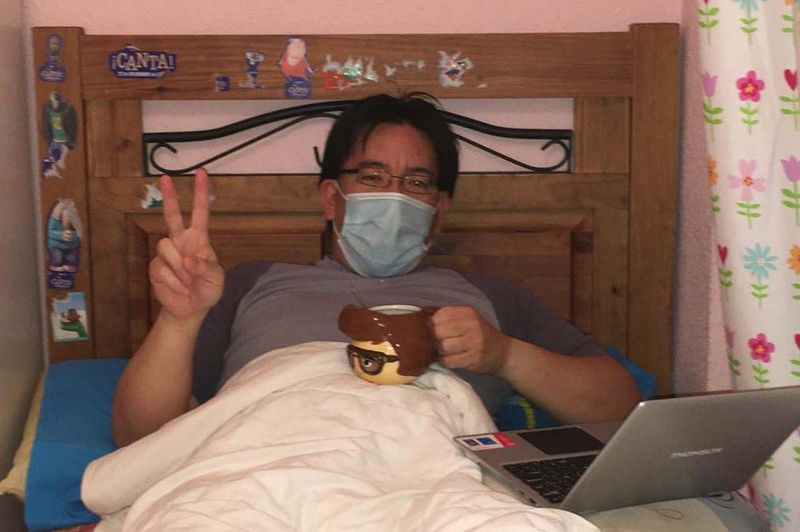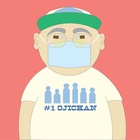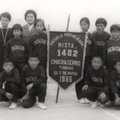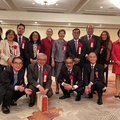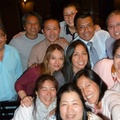In Spain, around 240 thousand cases of people infected with coronavirus have been registered. One of them is the Peruvian and former dekasegi Gabriel Ueda Tsuboyama, who has lived in the European country for more than 15 years. Luckily, it is also one of the approximately 150,000 recovered so far.
It all started with a throat problem that he minimized, attributing it to a different origin than the real one.
“It was all a bit comical. It turns out that I had had a swollen throat for a couple of days and when on the third day I woke up with stronger pain, the kind that hurts when you swallow food, I decided to go to the doctor's office to get a prescription and go home," he says. .
What until then he believed to be a minor ailment, one of those that can be resolved with a pill, became an experience that he will never forget.
“When I entered the clinic, the doctor looked at my throat, checked my chest and measured my temperature. He left without saying anything and entered with a special CBRN (Nuclear-Radiological-Biological-Chemical) suit, mask, gloves and all that. I obviously laughed because I thought to myself 'damn, the doc is so exaggerated'. I was cold when he told me 'put on this mask and go into the next room'.
In the room there was a nurse with the same protective equipment preparing to perform a test on him. Gabriel asked the doctor what was happening and he replied: 'You have shown signs of being a carrier of Covid-19, we are going to do the test.' I started laughing because I was healthy, without cough, mucus, or fever. When they test me I come out positive.”
He immediately called home. “I told my wife that it was positive and she didn't believe me, she told me to stop joking and asked what time I was going to arrive, hahahaha. The doctor told me that he was surprised that I was laughing because there were already deaths, and I told him 'what do I do, doctor? Do I start crying? I already have the virus.' I told him that I had already had the flu in Japan, and that could play an important role in the antibodies I might develop. I took it sportingly.”
The Peruvian – married with two children – fell ill at the end of March, when Spain was going through the most serious period of the health crisis. “I remember that we were already in a state of alarm and in Spain it is not customary to see police and army on the streets. It was like a movie. Unfortunately it is reality and people are dying.”
“THE STRONGEST THING WAS THAT I COULD NOT HUG OR KISS MY CHILDREN”
The doctor sent him home. Total isolation. That made. “I was just afraid of infecting my family, especially my children. What I did was prepare my daughter's room. I took all my things to continue my work and not go out at all. Even when I took a bath, I warned that I was going to go to the bathroom, so that my children could isolate themselves in another room. All my clothes, utensils, toothbrush, everything was separated from me as a precaution. “I was held in a room for 25 days.”
When the doctor ordered him to confine himself at home, his warnings in case the situation worsened in the next 48 hours were clear: “He told me that if I had a fever of 40 degrees for even an hour or I was short of breath, that “I would call an ambulance to pick me up.”
The danger, however, did not expire after 48 hours. “I was a little afraid because three days later the doctor called me—they monitored you through calls—and I had a fever of 37 and peaks of 38. They lasted about a week and the doctor told me that if it didn't go down in one day , I had to be admitted (to the hospital). Never had a fever lasted so long. "That's what worried me." He also had severe headaches, something very unusual for him.
Fortunately, the ambulance was not necessary. The Peruvian began to feel better in the second week. The antipyretics (drugs to reduce fever) that the doctor prescribed worked.
The fever subsided and, aware that he was in the process of clear recovery, tranquility returned to his life.
Finally, a new test certified that he had overcome the disease, but as established by health protocol, he spent two additional weeks isolated as a precaution.
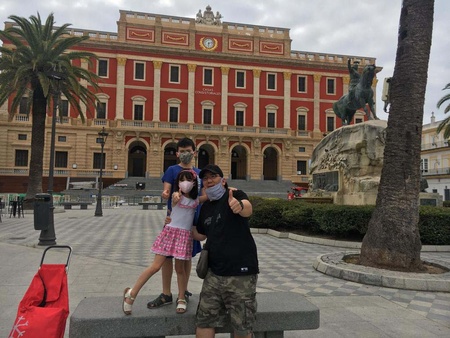
Like millions of people in quarantine, he filled a large part of his days consuming series and movies from streaming services.
Gabriel assures that he never thought he would not survive. “I always had confidence that (the disease) would not get worse,” he says. “My only fear was infecting my family.”
“I was not afraid of this virus, but I did respect... I was afraid that my children would catch it, although the pediatrician who sees them suspects that they have also gone through this because days before they had some symptoms that were not compatible with others viral processes. The pediatrician told us that since there were no defined childhood symptoms, he is betting that the two had Covid-19 due to the cough, fever, vomiting, in short. But it didn't scare me. I knew that if it didn't get worse I could overcome it. The hardest thing was that I couldn't hug or kiss my children.”
“I never thought I was going to die. “I didn't conceive that idea,” he emphasizes.
Anyone who knows Gabriel Ueda knows that one of his most notable traits is a peculiar sense of humor that, in difficult circumstances like the one he experienced, spreads laughter that dissipates tension.
“The first day I was like a 'stinker' in the room. I had isolated myself, my mask, gloves, everything. They had separated my dishes, my cutlery, my glass. And when Paula (his wife) comes in with the food so that I don't leave the room, I tell her 'show me now that you love me and give me a kiss.' 'A kiss? Let your f... mother give it to you,' and I tell her 'son of a f..., kiss me if you love me', and I take her by the hand and I want to put her in. She says 'not in bed, I'm going to leave the food for you at the door like for prisoners'. It was very good. “We laughed,” he remembers in a story interrupted by his laughter.
GUARD ALWAYS UP
Today Gabriel is working normally (he is dedicated to security and teaching). In his house everything has returned to working as usual. Spain is in a gradual stage of de-escalation after a rigid quarantine and seems to have overcome the worst. However, it would be foolhardy to let our guard down.
“Unfortunately, many people do not respect social distancing or the use of masks. I sincerely believe that many citizens are not taking this pandemic seriously,” warns Gabriel. The war is not won yet.
© 2020 Enrique Higa


